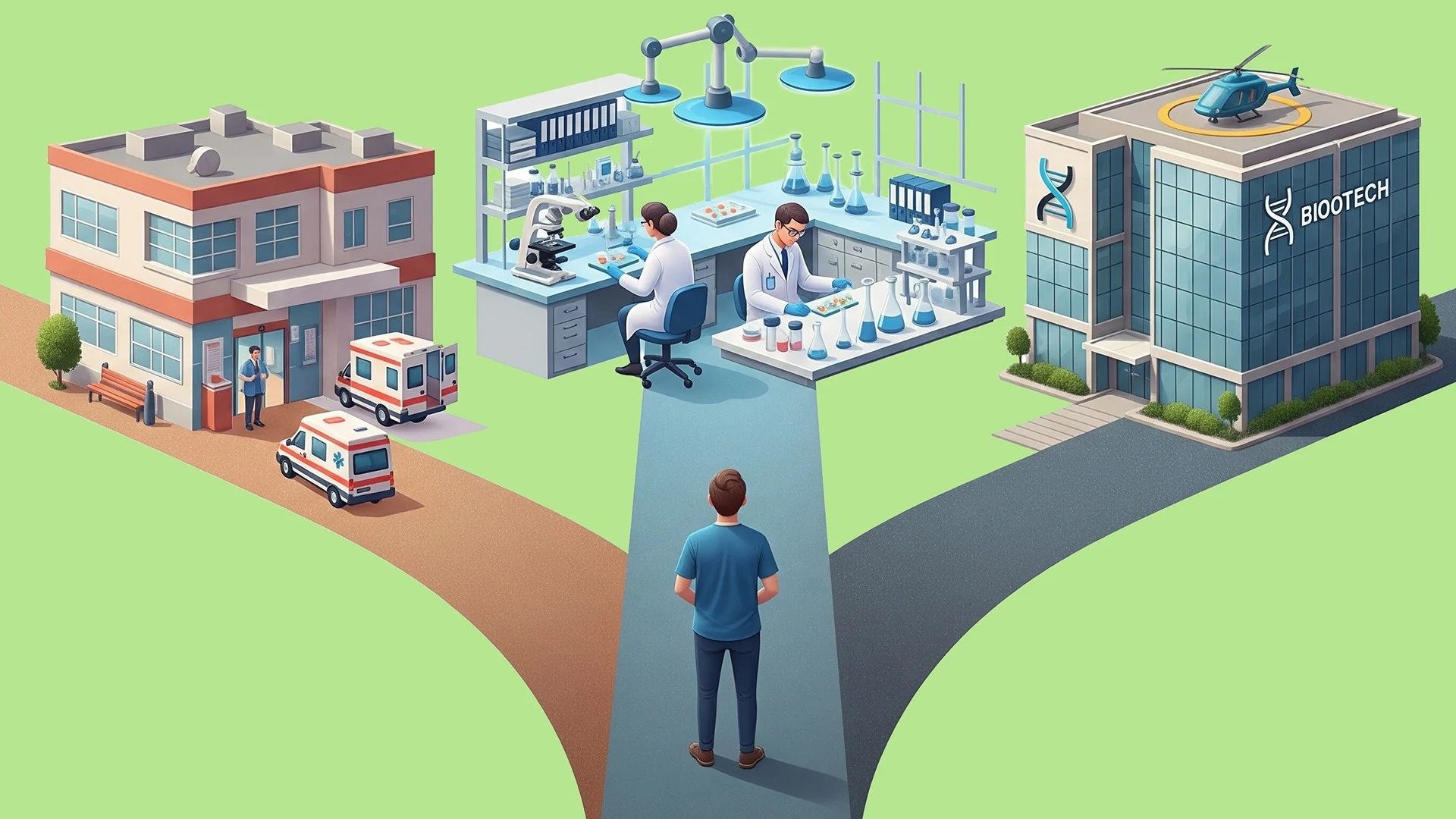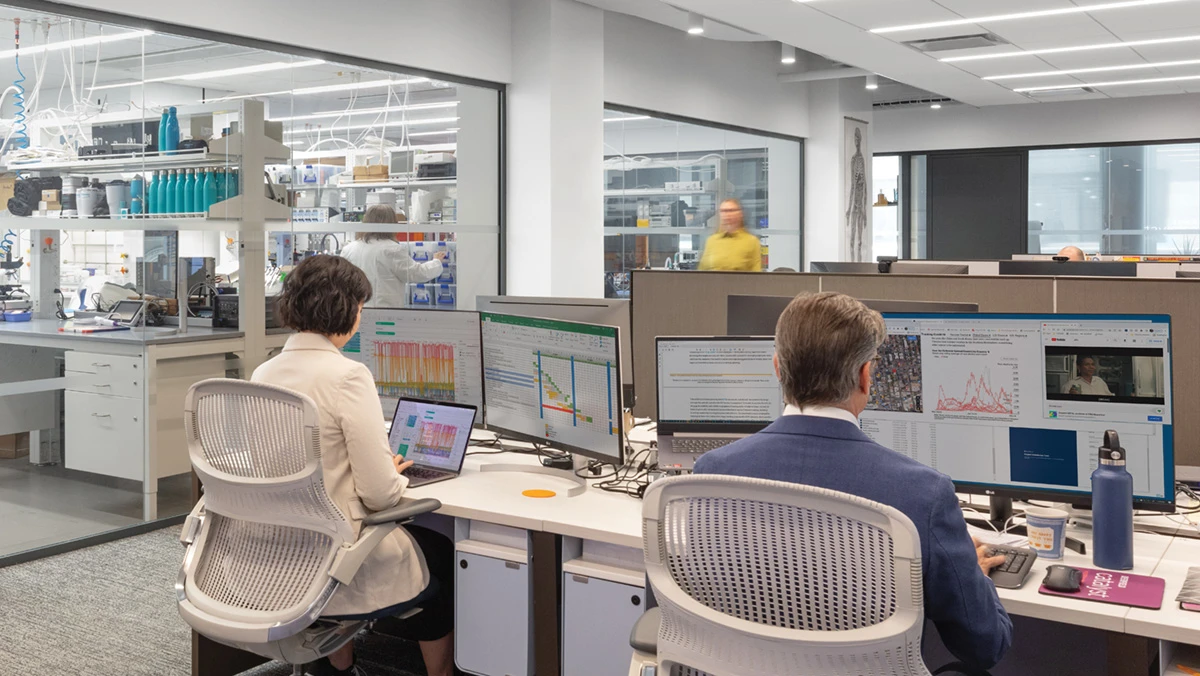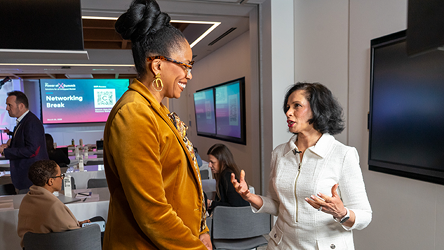
Overview
As fewer PhDs remain in academic research, institutions are embedding career development early in training, equipping scholars with skills, networks, and confidence to thrive across the healthcare and life sciences ecosystem.
Not every PhD graduate will stay in academia, and increasingly, most don’t. Whether by choice or circumstance, many scientists are pursuing careers in industry, startups, policy, and other sectors where their skills can drive healthcare and life sciences innovation.
That shift has created a pressing need for universities to rethink graduate education. Professional development programs, once optional or ad hoc, are now being embedded early in PhD training to help students explore diverse career paths, build transferable skills, and connect with mentors.
Experts say the earlier this guidance begins, the better prepared students are to transition into roles that match their expertise and sense of purpose.
"Healthy, happy students can help make your lab a whole lot more productive than the opposite," said Phil Trella, PhD, Associate Vice Provost and Director of the Office of Graduate and Postdoctoral Affairs at the University of Virginia.
Trella and three peers addressed how faculty advisors should encourage, support and sometimes mandate their students' participation in such programs, during a panel on “What if We Consciously Prepared Early Career Scholars for a Variety of Careers?” that was part of the recent summit Reimagining STEMM Graduate Education and Postdoctoral Career Development, hosted by the National Academies of Sciences.
Recognizing a Need for PhD Career Services
The realization that PhD students needed dedicated career services stems back to 1987, when the Graduate Career Consortium launched as an informal group of people who worked with doctoral students on career issues.
"They had a clear focus to support the professional and career development of graduate students who were navigating an increasingly complex professional landscape," noted panel moderator Emily Miller, PhD, Vice President of Research and Institutional Policy at the Association of American Universities.
The National Academies later issued a report on the future of postdocs. Other national reports consistently stated that universities needed to prepare PhD students and postdocs more broadly for the full breadth of career paths available to them. In 2002, the National Postdoctoral Association became the first organization dedicated to improving the postdoctoral experience. In the years to follow, the National Institutes of Health and the National Science Foundation made it mandatory for research grant recipients to provide career development and mentoring in their training programs.
Since then, many institutions created formal programs to meet this need. "They became laboratories for innovation and career and professional development," added Miller. "Over the years, we've recognized that career and professional development are fundamental to graduate education. We've seen a movement from isolated interventions to coordinated national policy and institution-wide initiatives."
Members of the panel described some of those initiatives and the challenges they have faced. When Cynthia Fuhrmann, PhD, Principal Investigator of the Professional Development Hub and Associate Professor of the RNA Therapeutics Institute at the University of Massachusetts Chan Medical School, was a graduate student at an academic medical center, she noted you had to do your own research to learn about your career options.
"If we wanted to learn about careers, we really had to do the footwork and figure it out, and we didn't really talk to our peers about it," she explained. She helped found the Professional Development Hub (pd|hub), a multi-stakeholder initiative to advance the career and professional development of scientists.
Roman Holowinsky, PhD, Associate Professor of Mathematics at The Ohio State University, described The Erdős Institute, which he co-founded and manages. Established in 2017 by a team of faculty, graduate students, and PhD alumni, the Erdős Institute is a multi-university collaboration dedicated to helping PhDs secure fulfilling jobs at every stage of their career.
"Many students told us that a course helped them strategize how to approach their careers, and that they learned about the diversity of science careers available to them that they had never heard about before," said Holowinsky.
Ashley Moses, a PhD student at Stanford University, realized very early that she did not want to be a professor. Believing in the power of stories and community, she created PhD Paths, a database of feedback from PhDs who have shared their journeys to careers outside of academia.
"I'm on a mission now after almost 300 interviews with these PhDs to continue normalizing career discovery for all students. We spend so much of our lives working that we should do something that is fulfilling and meaningful," said Moses.
The Best Career Guidance for PhDs in 4 Steps
In a research environment where many PhDs are losing or leaving positions and seeking other opportunities, professional development and career guidance are more critical than ever.
Here are four strategies the panelists shared for making it work.
1. View these services as necessary parts of a PhD program, not as extracurricular activities.
"A lot of career and professional development for graduate students is seen as a distraction or something that takes you away from your research, and if you spend too much time on it, you're slacking or you're not focused. That stops a lot of students from moving forward," said Moses.
Instead, faculty advisors should support the participation of PhD students in these endeavors and even consider making them a required part of their training. Students who have a clearer understanding of their career path may even graduate sooner.
"I had a fiscal officer give me the argument that if students are provided with diverse career pathways, they'll graduate sooner — maybe within five years rather than staying six or seven," said Holowinsky. "That will also help on the funding side."
2. Connect alumni from the PhD program, especially those from outside academia, with current students.
Alumni can share insights about their own journeys and reveal career paths that students may not have considered, as well as act as mentors.
"We invited PhD alumni to come back to their alma maters, talk about what they do, and share their recommendations on what current graduate students and postdocs should be doing to be better prepared," noted Holowinsky.
3. Professional development courses should include training in other core competencies.
Boosting writing, presentation, project management and teamwork skills goes a long way toward preparing students for a wider range of careers.
"I would have benefited tremendously if I had learned about those kinds of skills and competencies early on. It's not something that I ever would have sought out on my own," said Trella.
4. Build communities and ecosystems early to share ideas and strengthen support.
Students can learn to rely on each other and construct professional networks that will help fortify professional and personal connections.
"From the very first day of graduate education, we should let students know there's an ecosystem of careers and roles where scientists are needed," said Fuhrmann. "If we really think about the science ecosystem, that can help us be more open-minded and excited about contributing to the success of the broader STEMM ecosystem."
Added Moses, "Community and networks of people are how we're going to make the change here and encourage students to go wherever is right for them."





